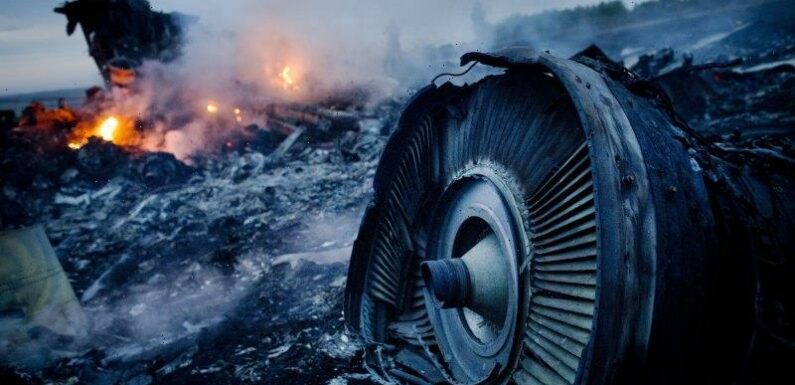
Foreign Minister Penny Wong is being urged by the federal opposition to sanction three men for their role in the shooting down of Malaysia Airlines flight MH17, which killed 298 people on board including 38 Australians.
The District Court of The Hague in November found three pro-Russian separatist fighters guilty of causing the downing of MH17 over eastern Ukraine in 2014.
Russians Igor Girkin and Sergey Dubinskiy, and Ukrainian national Leonid Kharchenko, were convicted of 298 counts of murder and “unlawfully causing an airplane to crash” by the Dutch court, but the three men remain at large.
More than 100 days after the sentencing, the Australian government has not sanctioned the trio over the downing of MH17 – although Girkin was sanctioned by Australia in 2014 for his general role in the separatist insurgency in eastern Ukraine.
In that time, Wong has made three separate announcements about sanctions against at least 119 individuals and 42 entities from Russia, Iran and Myanmar.
Opposition foreign affairs spokesman Simon Birmingham said the Albanese government needed to uphold the legacy of Australia’s strong response to the downing of MH17 and apply sanctions against the three convicted separatists.
The three men were found to be involved in the downing of the MH17 flight, which was shot down in Ukraine in 2014.Credit:Getty
“This was a tragedy of enormous proportions and, while Russia may continue to stand in the way of justice, we should still use all means available to Australia,” he said.
“We should be willing to lead and to urge others to join Australia.
“There should be no more encouragement needed than the guilty verdicts for Minister Wong to apply sanctions on these murderers or to provide a very strong justification for why no course of action has been taken to date.”
The opposition’s foreign affairs spokesman Simon Birmingham says Australia needs to sanction the three men.Credit:Alex Ellinghausen
Australia could impose sanctions on the three men under the Russia and Ukraine Autonomous Sanctions regime – the nation’s Magnitsky-style laws – on the basis that they were responsible for a serious violation or serious abuse of a person’s right to life.
A spokesperson for the Department of Foreign Affairs and Trade said Australia and its partners were pursuing “multiple avenues to hold those responsible for the downing of Flight MH17 to account”.
“Australia keeps its sanctions under regular review,” the spokesperson said.
“In line with longstanding practice, the government does not speculate or publicly comment on sanctions considerations.”
The presiding judge, Hendrik Steenhuis, said the court had concluded that MH17 was shot down by a Russian-made BUK missile in the eastern Donbas region and that the evidence in the trial did not leave “any possibility for reasonable doubt whatsoever”.
The wreckage of MH17.Credit:AP
Prosecutors said that while the three men did not “press the button themselves”, they were responsible for transporting the missile from Russia to the battlefield in eastern Ukraine.
Anton Moiseienko, a lecturer at the ANU College of Law, said it would be easy to sanction all three men, but considering they were unlikely to have assets in Australia, it might not be a priority.
He said Australia might be looking to sanction the men alongside international partners including the European Union, United States and Canada.
Moiseienko said Australia had been “very timid” in using its Magnitsky-style laws since passing them more than a year ago.
He said the visa and property-related sanctions on individuals who committed serious human rights abuses and corruption shouldn’t only be used on those already sanctioned by other countries, but should be targeted at people who have links to Australia.
“It’s simply not delivering on the promise that Australia made in terms of introducing a corruption and human rights sanctions regime,” Moiseienko said.
“So far, what seems to be happening, is that Australia picks a couple of people who were previously sanctioned by the US, the UK and the EU, and imposes its own sanctions on them – but in an absolutely tiny proportion of those people.”
Cut through the noise of federal politics with news, views and expert analysis from Jacqueline Maley. Subscribers can sign up to our weekly Inside Politics newsletter here.
Most Viewed in Politics
From our partners
Source: Read Full Article


